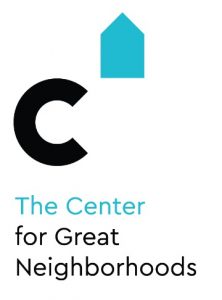Duke Energy announced the recipients of its 2020 Urban Revitalization grants, which deliver $213,500 to eight redevelopment and small business assistance programs across Southwest Ohio and Northern Kentucky.
This is the 10th iteration of the company’s Urban Revitalization grants. Since launching the program in 2011, Duke Energy has awarded more than $2.6 million to 83 grantees across Greater Cincinnati.
“It’s exciting and gratifying to see how these grants have spurred development and lasting change along dozens of ‘Main Streets’ across southwest Ohio and Northern Kentucky over the past 10 years,” said Amy Spiller, president of Duke Energy Ohio/Kentucky. “These urban cores are transforming into vibrant and entrepreneurial hubs with beautifully restored buildings, dynamic businesses and a diversity of new jobs.”
On top of funding redevelopment projects in urban areas outside of Cincinnati’s central business district, this year’s Urban Revitalization grants also provide support to entrepreneurs and small businesses that continue to be impacted by the COVID-19 pandemic.
“The Duke Energy grant really uplifts and injects life into our project and inspires hope around what we can bring to the West End community amidst a health and racial pandemic,” said Toilynn O’Neal Turner, founding director of the Robert O’Neal Multicultural Arts Center, which was awarded $100,000 as part of this year’s Urban Revitalization grants.
“The reality is every dollar makes a significant impact,” said O’Neal Turner. “And the initial dollars, for things like our architect and our surveyors and to develop our marketing strategy, these dollars are crucial for us to see the vision of this project coming to life.
“It’s been a wonderful experience to keep moving forward at a time when many of us are really trying to evaluate and address how we’re going to move forward collectively.”
Duke Energy, through the Duke Energy Foundation, provided more than $2 million in grants across Greater Cincinnati communities in 2020. This includes nearly $300,000 for pandemic-related causes like hunger relief and elder care, supplies for front-line workers, and grants to struggling small businesses owned by women, veterans and minorities.
2020 Urban Revitalization grantees
The following Greater Cincinnati projects in Northern Kentucky were awarded grants:
• Catalytic Development Funding Corp. of Northern Kentucky
$10,000 for 722 Scott St. in Covington.
The redevelopment of the former NorthKey Community Care building will create 11,600 square feet of high-quality and desirable office space. Future tenants will value the building’s location, which is one block west of Covington’s vibrant Madison Avenue commercial corridor and 1 mile south of downtown Cincinnati, as well as its 40-space, on-site parking lot. The Urban Revitalization grant will be put toward architectural and engineering drawings, as well as other predevelopment costs required to qualify for historic tax credits. Experts believe this project could serve as a catalyst for the redevelopment of at least three neighboring properties along Scott Street.

The Catalytic Fund was awarded a 2020 Urban Revitalization grant to be used to transform the property at 471 Elm St. in Ludlow. Once construction is complete, the building will be home to North South Baking Co.
• Catalytic Development Funding Corp. of Northern Kentucky
$15,000 for 471 Elm St. in Ludlow.
Kate Standfest owns and operates North South Baking Co. and sells her delicious baked goods at events, cafes and coffee shops across the region. Soon she’ll be able to expand her operations and create jobs – all while giving new life to a vacant, 90-year-old structure in the heart of Ludlow. Standfest is working with the Catalytic Fund to transform the building at 471 Elm St. into a commercial baking kitchen that will serve North South Baking’s existing wholesale customers as well as offer an on-site retail area. The Duke Energy grant will be used for architectural design and engineering services related to the transformation of the 3,000-square-foot building, which originally housed an automobile filling and service station.
• Center for Great Neighborhoods of Covington
$11,000 for COVID support of culinary businesses and commercial bakery retail space.
The Center for Great Neighborhoods of Covington will use its Urban Revitalization grant for two purposes. First, the funding will allow the organization to offer virtual support to local chefs, many of whom completed the Chef Fellowship program. The fellowship program was launched in 2016 to support local residents who are passionate about sharing their food creations but lack the money, language, connections and more to make their dreams come to life. The virtual support will help these individuals and other food entrepreneurs navigate the realities of operating food-based businesses during the pandemic.
The second focus of the Duke Energy grant is predevelopment work associated with the creation of a shared retail and commercial bakery retail space along Covington’s Martin Luther King Jr. Blvd. commercial corridor. This future community asset will serve the broader neighborhood and provide an affordable space for local bakers looking to start their own businesses.
Grants provide gap funding, catalysts for further economic development
The vision for the Urban Revitalization grant program emerged during and after the Great Recession. That’s when Duke Energy leaders learned that nontraditional developers like community groups, small business owners and entrepreneurs were interested in giving new life to historic, yet blighted and neglected, buildings that once served as the epicenters of communities and neighborhoods. However, these visionaries experienced difficulties getting these projects off the ground.
“Plans to restore a 100-year-old structure from top to bottom oftentimes cannot move forward due to small, but critical, upfront costs, like the development of detailed architectural and engineering plans,” said Spiller. “This is where the Urban Revitalization grants prove invaluable.
“While our funding is modest in comparison to the costs to redevelop or revamp a property, these catalyst grants are vital for individuals and organizations to obtain the necessary credentials for seeking and securing permits, additional grants and traditional financing for construction.”
Duke Energy
























